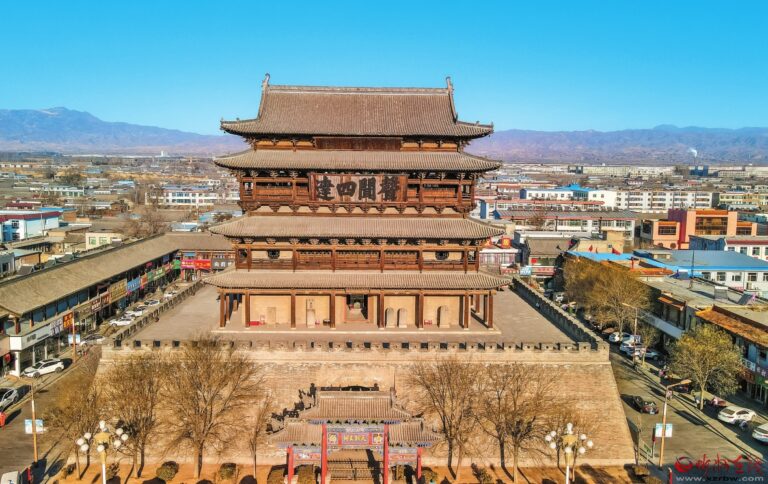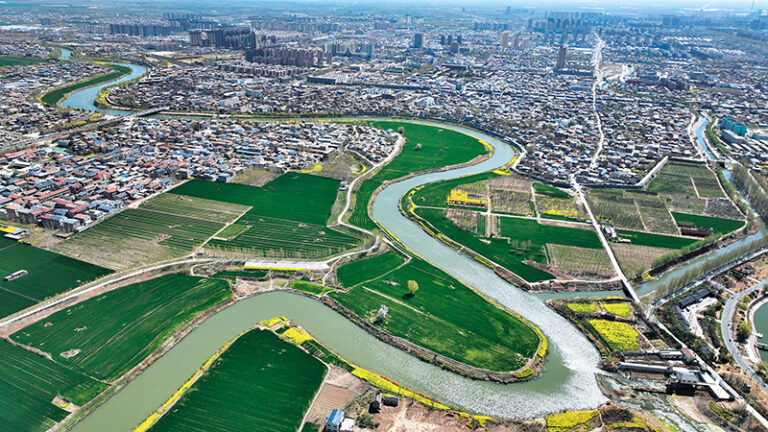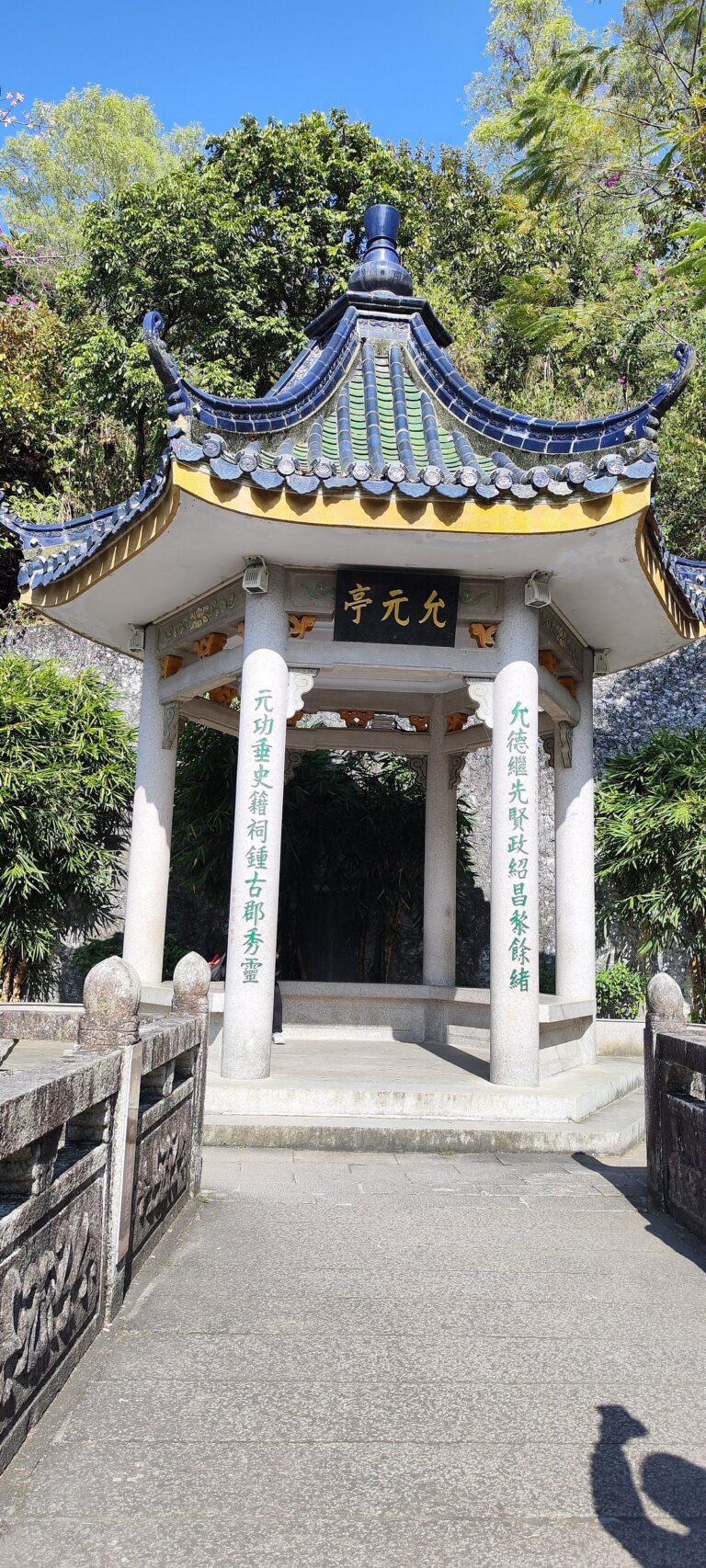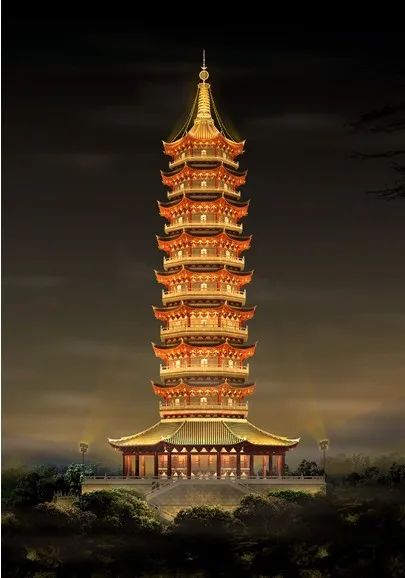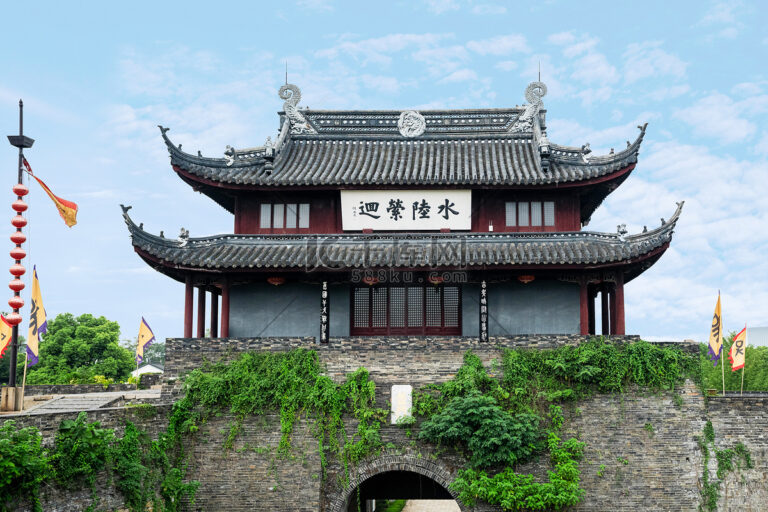Uncover the Mystical Beauty of Jiaozuo Yaowangmiaodadian: A Must-Visit Destination in Henan
An Essential Guide to Visiting Jiaozuo Yaowangmiaodadian
In This Guide
- An Essential Guide to Visiting Jiaozuo Yaowangmiaodadian
- The Rich History of Jiaozuo Yaowangmiaodadian
- Main Highlights: What to See at Jiaozuo Yaowangmiaodadian
- Planning Your Visit: A Practical Guide
- Tickets, Hours, and Booking
- How to Get There
- Local Cuisine and Accommodation
- Frequently Asked Questions
- Final Thoughts on Your Trip
Nestled in the heart of Jiaozuo, the Yaowang Miaodadian, or Medicine King Temple Hall, is an exquisite testament to China’s rich cultural tapestry and spiritual heritage. This historic site, dedicated to the revered figure Sun Simiao—often hailed as the “Medicine King”—offers visitors a unique glimpse into ancient Chinese medicine and the enduring legacy of traditional healing practices.
The temple’s origins trace back over a millennium, with its structure reflecting the architectural grandeur of the Yuan, Ming, and Qing dynasties. Despite the ravages of time and conflict, the hall has been meticulously preserved, showcasing its original wooden construction and intricate design elements that evoke the spirit of ancient China.
As you approach the temple, the serene atmosphere envelops you, inviting contemplation and reverence. The site is not merely a religious sanctuary; it’s a vibrant hub of cultural activity, drawing devotees and tourists alike who come to pay homage to Sun Simiao, whose contributions to medicine and public health resonate through the ages. Here, the intertwining of spirituality and history is palpable, as ancient inscriptions and sacred relics tell stories of healing and compassion, embodying the essence of Chinese medicinal traditions.
Whether you seek a deeper understanding of traditional medicine, a moment of tranquility, or simply the beauty of ancient architecture, Yaowang Miaodadian stands as a beacon of cultural significance in Jiaozuo, awaiting your discovery.
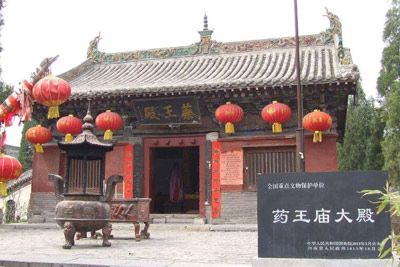
Jiaozuo Yaowangmiaodadian.
The Rich History of Jiaozuo Yaowangmiaodadian
The Yaowangmiaodadian, also known as the Medicine King Temple Hall, is a historical and cultural gem located in Jiaozuo, Henan Province, China. Its origins trace back over a millennium, reflecting the rich tapestry of Chinese history and its deep connections to traditional medicine.
The temple’s history is rooted in the reverence of Sun Simiao, a renowned physician from the Tang Dynasty, often hailed as the “Medicine King.” It is said that Sun Simiao resided at this site for 26 years during his youth, where he dedicated himself to the study and practice of medicine. He conducted extensive research and compiled medical texts, including the influential “Qianjin Yaofang” (Essential Prescriptions Worth a Thousand Gold) and “Qianjin Yifang,” which laid the groundwork for future generations of physicians.
Originally, the site housed a shrine dedicated to various deities, evolving through different dynasties. The earliest records suggest that during the Eastern Han period, a temple was established to honor the spirit of the Wei King and the son of Li Bing, a governor from the Qin Dynasty. Over the centuries, the temple underwent multiple renovations and relocations, reflecting the changing political and social landscapes of China. It was during the Northern Song Dynasty that the site was officially designated as the Medicine King Temple.
Throughout the Song, Ming, and Qing dynasties, the temple saw significant expansions and restorations, with emperors recognizing its cultural and spiritual importance. The temple became a pilgrimage site for those seeking healing and blessings, especially during the peak of Daoist practices in the region. The construction of the Grand Hall, which remains today, showcases the architectural prowess of the Yuan Dynasty and is a rare example of wooden structure from that period.
Despite facing challenges, including damage during the Anti-Japanese War and the Cultural Revolution, efforts to restore and preserve the temple have been ongoing. In the 1990s, significant funding was allocated for its restoration, ensuring that the hall retains its historical authenticity while remaining a vibrant center for cultural and religious activities.
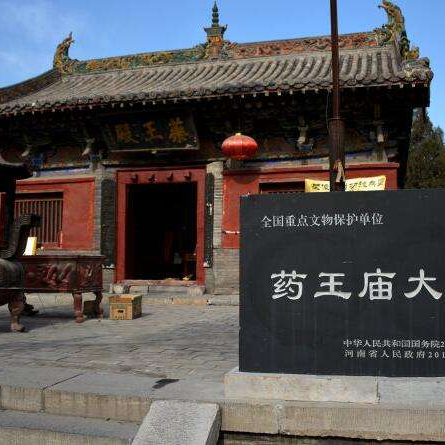
Jiaozuo Yaowangmiaodadian.
Today, the Yaowangmiaodadian stands as a testament to the enduring legacy of traditional Chinese medicine and the revered figure of Sun Simiao. It serves not only as a place of worship but also as a cultural heritage site, attracting visitors from across the globe who come to explore its history, architecture, and the profound impact of Chinese medicine on global health practices. The temple’s ongoing significance reflects the deep-rooted traditions of reverence for healing and the pursuit of knowledge that have characterized Chinese civilization for centuries.
Main Highlights: What to See at Jiaozuo Yaowangmiaodadian
Nestled in the heart of Jiaozuo, the Yaowang Miaodadian (药王庙大殿), also known as the Grand Hall of the Medicine King, stands as a testament to the rich tapestry of Chinese history and culture. This site is dedicated to Sun Simiao, a revered figure in traditional Chinese medicine, often referred to as the “Medicine King.” His legacy is deeply intertwined with the hall, which serves both as a spiritual sanctuary and a historical monument.
Architectural Splendor
Constructed during the Northern Song Dynasty, this grand hall is one of the few surviving examples of early wooden architecture from the Yuan Dynasty. The structure showcases traditional Chinese architectural elements, characterized by its elegant eaves and intricate detailing. Visitors can admire the unique glazed tiles and dragon motifs that adorn the rooftops, reflecting the hall’s significance and cultural heritage.
Historical Significance
Yaowang Miaodadian has a storied past, having undergone numerous renovations and reconstructions throughout various dynasties, including the Ming and Qing. The site has been a focal point for practitioners and adherents of traditional Chinese medicine, especially during the peak of Daoist influence in the Song Dynasty. The hall’s history is not merely architectural; it embodies the evolution of medicinal practices in China, linked directly to Sun Simiao’s contributions to herbal medicine.
Spiritual Hub
The hall is not just a historical site; it is a thriving center for worship and spiritual activities. Devotees flock to the temple, especially during significant festivals, to pay their respects and seek blessings for health and prosperity. The air is often thick with incense, creating an atmosphere of reverence and tranquility. The hall features a statue of Sun Simiao, portrayed in a contemplative pose, symbolizing his dedication to healing and compassion.
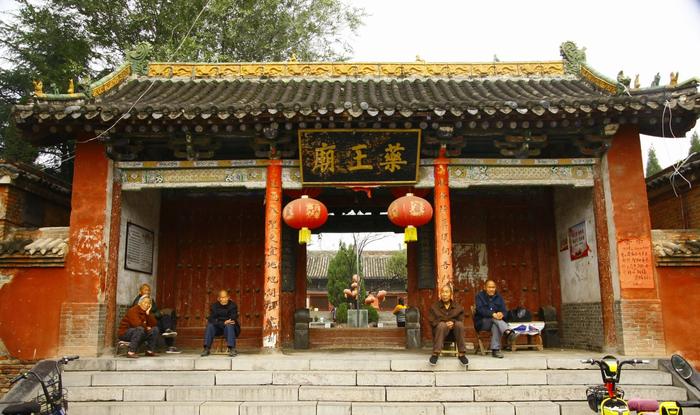
Jiaozuo Yaowangmiaodadian.
Surrounding Attractions
Visitors to the Yaowang Miaodadian can explore the lush gardens and ancient trees that surround the hall, including the legendary “Thousand-Head Cypress,” believed to have been planted by Sun Simiao himself. The site also features a Tang Dynasty stele, which adds to its historical allure. Nearby, the newly constructed pavilions and cultural exhibition halls provide educational insights into the heritage of Chinese medicine and the life of Sun Simiao.
Cultural Experience
Beyond its historical and architectural appeal, the Yaowang Miaodadian offers a unique cultural experience. The temple hosts various events, workshops, and festivals that celebrate traditional Chinese medicine, allowing visitors to engage with local customs and practices. Whether you are seeking spiritual solace or a deeper understanding of Chinese medicinal traditions, a visit to this magnificent hall promises a rich and enlightening experience.
In summary, the Yaowang Miaodadian is a must-visit destination in Jiaozuo for anyone interested in history, culture, and spirituality. Its enchanting architecture, profound historical significance, and vibrant spiritual community offer a window into the enduring legacy of Chinese medicine and the revered figure of Sun Simiao.
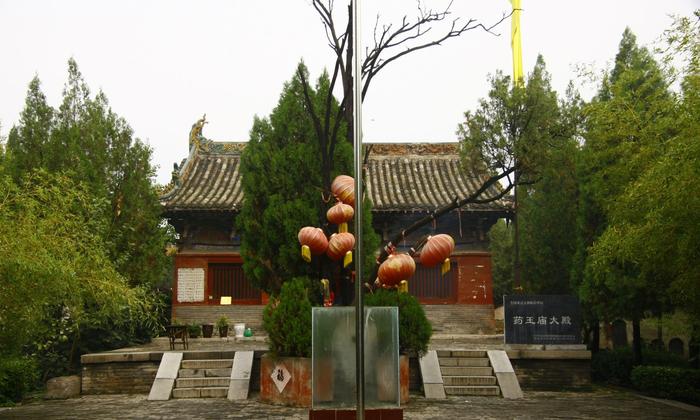
Jiaozuo Yaowangmiaodadian.
Planning Your Visit: A Practical Guide
Practical Guide to Jiaozuo Yaowangmiaodadian (药王庙大殿)
Overview
Jiaozuo Yaowangmiaodadian, also known as the Yaowang Temple, is a significant cultural and historical site located in the Shanyang District of Jiaozuo City, Henan Province, China. This temple is dedicated to Sun Simiao, a revered figure in traditional Chinese medicine, often referred to as the “King of Medicine.” The structure combines architectural elegance with a rich history, making it a must-visit for both cultural enthusiasts and those interested in traditional healing practices.
Getting There
– By Train: Jiaozuo has a well-connected railway station. High-speed trains from major cities like Zhengzhou take approximately 30 minutes. From the station, taxis or local buses can be taken to reach the temple.
– By Bus: Long-distance buses run frequently to Jiaozuo from various cities in Henan Province. Upon arrival, local transport options are readily available.
– By Car: For those driving, the temple is easily accessible via major highways, with ample parking available on-site.
Opening Hours
The Yaowang Temple is typically open from 8:00 AM to 6:00 PM. However, it’s advisable to check for any seasonal changes or special events that may affect visiting hours.
Admission Fees
Entry to the Yaowang Temple is generally free, but donations are appreciated to help maintain the temple and its grounds.
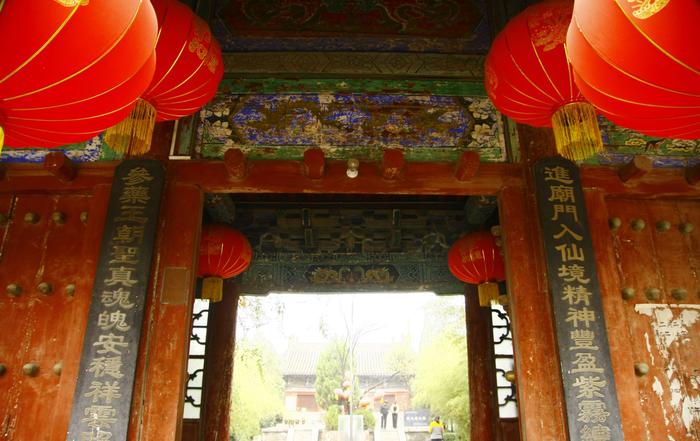
Jiaozuo Yaowangmiaodadian.
What to See
– Main Hall (大殿): The centerpiece of the temple, featuring intricate architecture dating back to the Yuan Dynasty. Inside, you can find a statue of Sun Simiao, surrounded by offerings made by visitors seeking health and healing.
– Ancient Cypress Trees: Notably, a centuries-old cypress tree is said to have been planted by Sun Simiao himself. It symbolizes longevity and health.
– Lingbiao Stele (通灵碑): A Tang Dynasty monument that bears inscriptions related to the temple’s history and Sun Simiao’s contributions to medicine.
– Cultural Exhibits: The temple complex includes a museum dedicated to traditional Chinese medicine, showcasing ancient texts and medicinal herbs.
Local Cuisine
While visiting the temple, don’t miss the chance to savor local specialties. Nearby food stalls and restaurants offer:
– Noodle Soup (驴肉火烧): A local delicacy featuring tender donkey meat in a savory broth.
– Sesame Cakes (芝麻饼): Crispy, flaky pastries filled with sesame and often enjoyed as a snack.
– Herbal Teas: Many local tea houses serve herbal infusions believed to enhance health, reflecting the temple’s medicinal heritage.
Cultural Significance
The Yaowang Temple is not just a spiritual place; it’s a hub for practitioners and students of traditional Chinese medicine. Visitors can often observe rituals and ceremonies, offering a glimpse into the practices that honor the legacy of Sun Simiao.
Tips for Visitors
– Dress Appropriately: As a place of worship, dress modestly and respectfully.
– Plan for Time: Allocate at least a few hours to explore the temple and its surroundings fully.
– Photography: Photography is allowed in most areas, but be respectful of worshippers and ceremonies.
– Local Etiquette: Engage with the local culture by participating in simple rituals, such as lighting incense or making a wish at the statue of Sun Simiao.
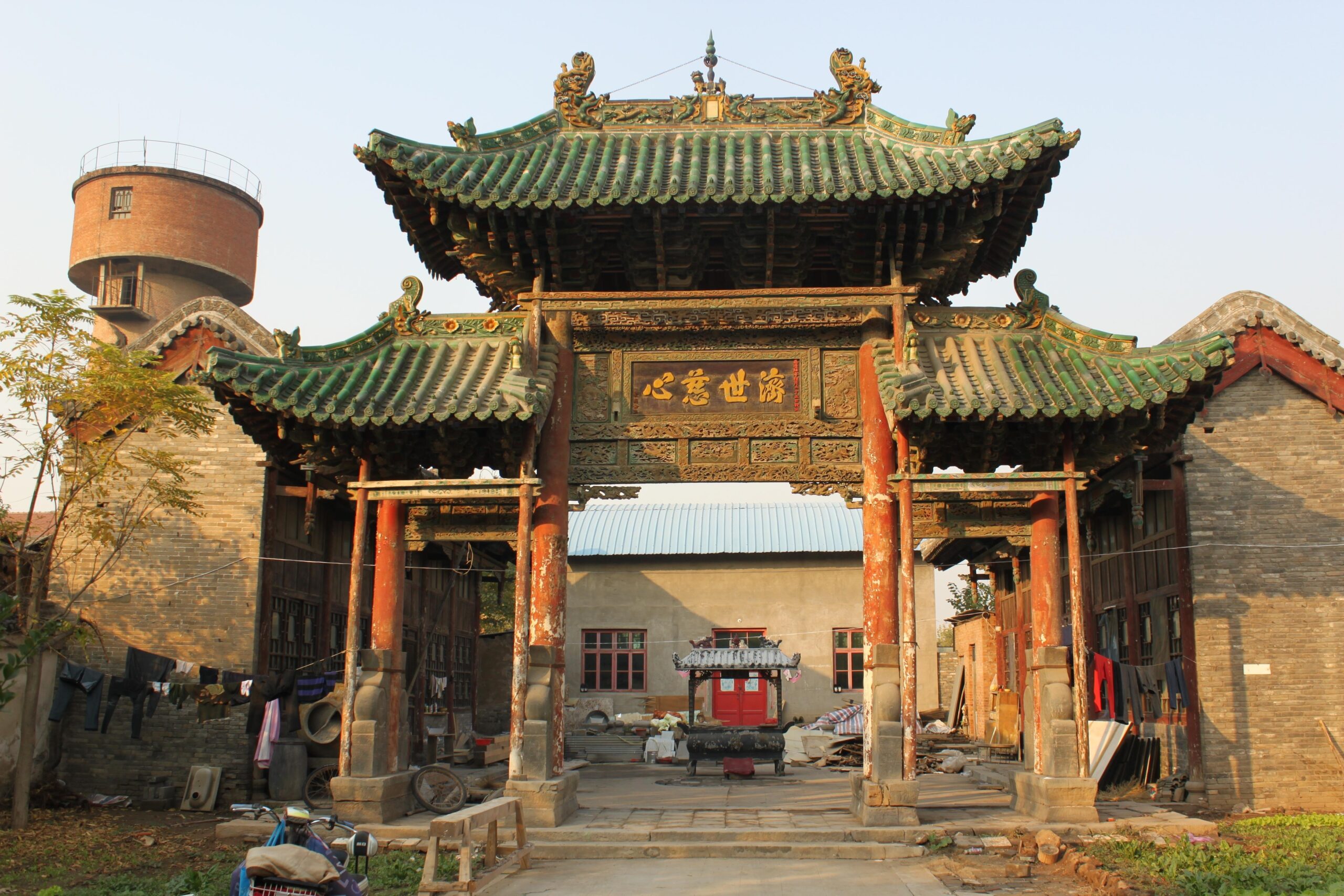
Jiaozuo Yaowangmiaodadian.
Accommodation
For those wishing to stay overnight, there are various accommodations nearby, ranging from budget hostels to comfortable hotels. Booking in advance is recommended, especially during peak tourist seasons.
Conclusion
A visit to Jiaozuo Yaowangmiaodadian offers a unique blend of culture, history, and spirituality. Whether you’re seeking healing, knowledge, or simply a deeper understanding of Chinese culture, this temple stands as a testament to the enduring legacy of traditional medicine in China. Make sure to include it in your travel itinerary when exploring the rich tapestry of Henan Province!
Tickets, Hours, and Booking
When planning a visit to the Jiaozuo Yaowangmiaodadian (药王庙大殿), also known as the Hall of the Medicine King, it’s essential to have the right information regarding ticketing to ensure a smooth experience.
Ticket Information
-
Admission Fee: The entry fee for the Jiaozuo Yaowangmiaodadian is typically around ¥30 (approximately $4.50 USD). This fee grants you access to the main hall and the surrounding cultural exhibits related to the history of the Medicine King, Sun Simiao.
-
Opening Hours: The site is open daily from 8:00 AM to 5:00 PM. It’s advisable to arrive early to avoid crowds, especially during weekends and public holidays.
-
Where to Buy Tickets: Tickets can be purchased at the entrance of the temple complex. There are usually staff available to assist with the ticketing process, and you may also find some kiosks offering information about guided tours.
-
Guided Tours: For those interested in a more in-depth experience, guided tours are available and typically cost an additional fee. These tours provide valuable insights into the rich history and cultural significance of the site, including stories about Sun Simiao’s contributions to traditional Chinese medicine.
-
Discounts: Students and senior citizens may be eligible for reduced ticket prices upon presentation of valid identification. It’s a good idea to check for any promotional offers or seasonal discounts that might be available during your visit.
-
Payment Methods: While cash is accepted, many visitors prefer to use mobile payment options like Alipay or WeChat Pay, which are widely used in China. Ensure that you have a payment method ready, as credit cards may not be accepted everywhere.
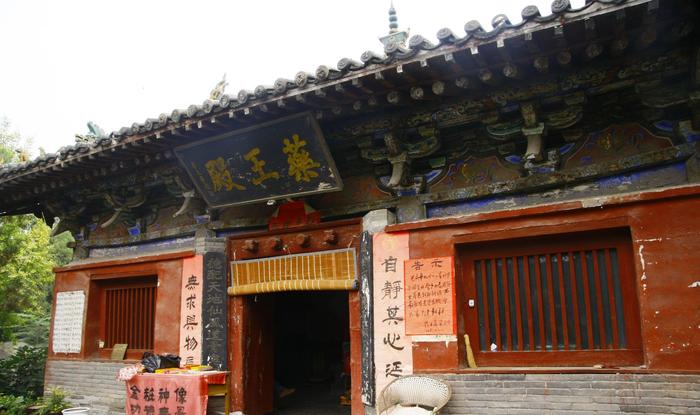
Jiaozuo Yaowangmiaodadian.
By preparing ahead with this ticket information, you can focus on enjoying the serene atmosphere and historical significance of the Jiaozuo Yaowangmiaodadian. Whether you’re a history enthusiast or simply looking to immerse yourself in the local culture, this site is a must-visit during your travels.
How to Get There
Getting to Jiaozuo Yaowangmiaodadian (药王庙大殿), a historical site rich in cultural significance, is quite accessible thanks to the well-connected transportation options available in Jiaozuo, Henan Province. Here’s a comprehensive guide to help you navigate your journey to this remarkable temple.
By Train
Jiaozuo boasts a modern railway station that serves high-speed and regular trains from major cities across China. The Jiaozuo Railway Station is well-equipped and offers services that can whisk you to the temple with relative ease.
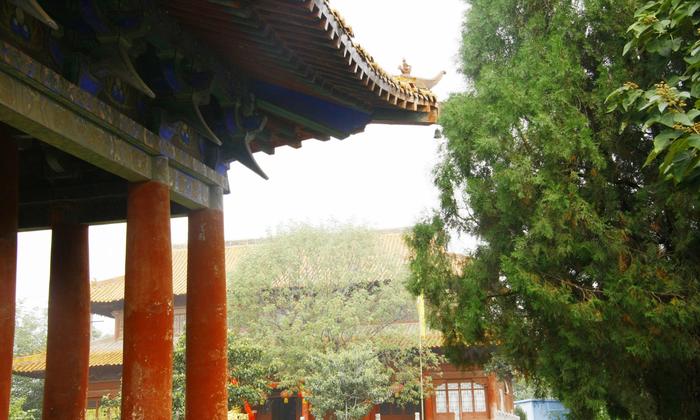
Jiaozuo Yaowangmiaodadian.
- High-Speed Rail: If you’re coming from Beijing, Zhengzhou, or other major cities, opt for high-speed trains (G-trains) that connect you directly to Jiaozuo. The journey from Zhengzhou typically takes about 30 minutes.
- Local Transit: Upon arrival at the railway station, you can take a taxi or use ride-hailing apps like Didi to reach Yaowangmiaodadian, which is approximately 30 kilometers away from the station.
By Bus
Long-distance buses are another viable option for reaching Jiaozuo. Buses from surrounding cities and towns frequently arrive at the Jiaozuo Bus Station.
- Intercity Buses: Look for buses traveling from cities such as Zhengzhou, Luoyang, and Pingdingshan. The bus ride offers a scenic view of the landscape and typically takes around 1 to 2 hours depending on traffic conditions.
- Local Buses: Once you arrive at the Jiaozuo Bus Station, you can take local public buses or a taxi to the temple. Check the local bus schedules for routes that head towards the mountain area where Yaowangmiaodadian is located.
By Car
For those who prefer the flexibility of driving, renting a car is a great choice.
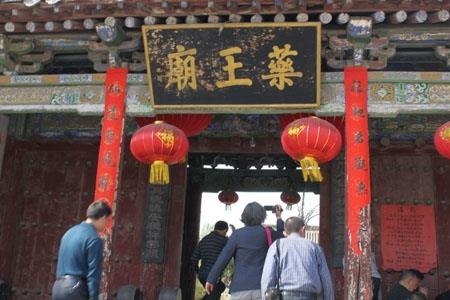
Jiaozuo Yaowangmiaodadian.
- Car Rentals: Major car rental companies have offices in Jiaozuo. Reserve a vehicle in advance, especially during peak tourist seasons.
- Navigation: Use navigation apps to assist you in driving to the temple. The roads are generally well-maintained, and the drive offers beautiful views of the region.
Local Transportation
Once in Jiaozuo, several local transportation options are available:
- Taxis: Taxis are widely available throughout the city. They are a convenient way to travel directly to Yaowangmiaodadian.
- Ride-Hailing Services: Apps like Didi are popular for local travel and can provide a hassle-free way to get around.
- Bicycles and E-scooters: For a more environmentally friendly option, consider renting a bicycle or an e-scooter available through various local services.
Accessibility
Yaowangmiaodadian is situated in a culturally vibrant area, and the roads leading to the temple are accessible for various modes of transportation. If you’re traveling with mobility challenges, it is advisable to contact local tour services in advance to ensure appropriate arrangements.
Whether you choose to travel by train, bus, car, or local transit, making your way to Jiaozuo Yaowangmiaodadian is straightforward. Enjoy your visit to this majestic temple, a tribute to the healing traditions of ancient China!
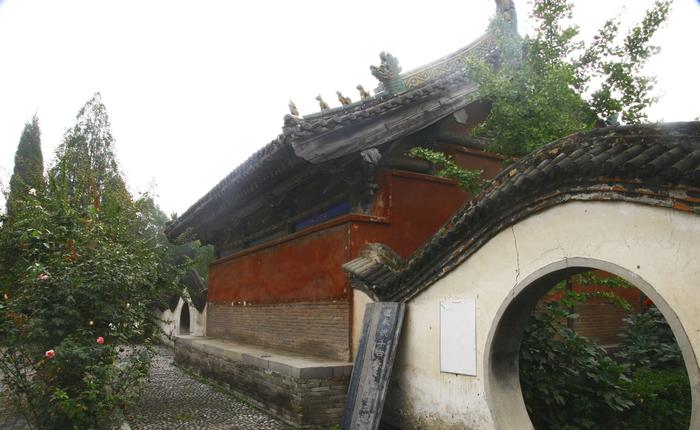
Jiaozuo Yaowangmiaodadian.
Local Cuisine and Accommodation
When visiting Jiaozuo’s Yaowangmiaodadian, the experience extends beyond the historical and spiritual aura of the temple itself to the delightful local cuisine and comfortable accommodations the area has to offer.
Culinary Delights
Jiaozuo is known for its unique flavors, and sampling the local cuisine is a must. Here are some dishes you shouldn’t miss:
-
Naotang Donkey Meat (闹汤驴肉): A signature dish of Jiaozuo, this delicacy features tender donkey meat served in a rich, flavorful broth. It’s often paired with a spicy dipping sauce that elevates the dish’s taste. Enjoy it with a bowl of “donkey meat soup” to warm your soul.
-
Huai Cuisine (怀府家乡菜): This traditional cuisine incorporates various local ingredients, offering dishes that reflect the rich agricultural heritage of the region. Expect to find hearty meals that highlight seasonal vegetables and locally sourced meats.
-
Yao Tea (药王茶): A traditional herbal tea that not only refreshes but is also believed to have various health benefits. Enjoy a cup while contemplating the serene surroundings of the temple.
-
Baked Sesame Cake (靳贤书烧饼): A beloved local snack, these sesame cakes are crispy on the outside and soft on the inside. They make for a delightful snack while exploring the temple grounds.
Where to Stay
For a comfortable stay near Yaowangmiaodadian, consider the following options, which cater to a variety of preferences and budgets:
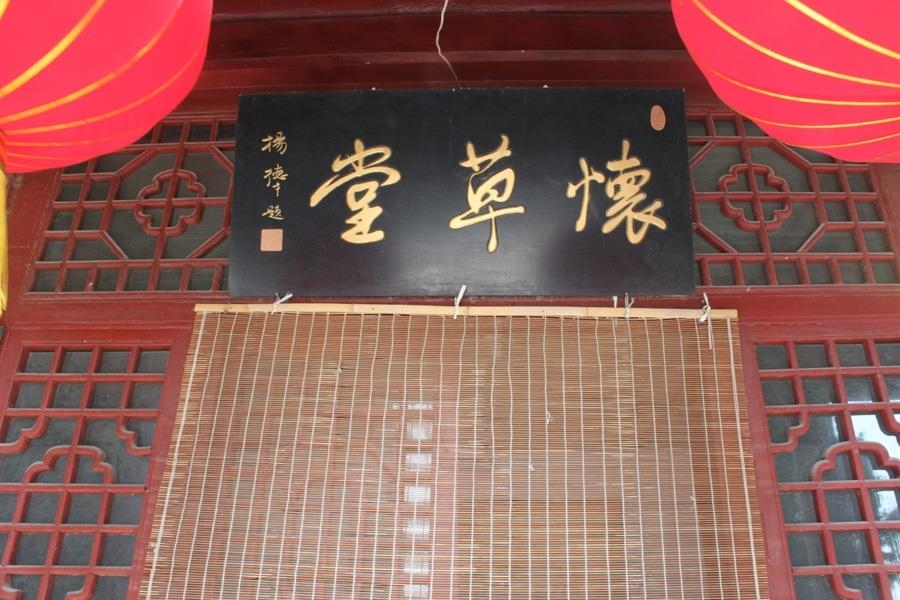
Jiaozuo Yaowangmiaodadian.
-
Xuan Cheng Dabeishan Hotel (焦作轩成大别山酒店): This hotel is known for its modern amenities and warm hospitality. Guests can enjoy spacious rooms with beautiful views of the surrounding landscape, as well as excellent dining options that feature local specialties.
-
Jiaozuo Yijing Hotel (焦作怡景酒店): A mid-range option that offers cozy rooms and a friendly atmosphere. It’s conveniently located, making it easy for guests to explore nearby attractions, including the Yaowang Temple and other historical sites.
-
Homestays and Guesthouses: For a more immersive experience, consider staying in a local homestay. Many offer charming accommodations with traditional decor, home-cooked meals, and personal stories about the area’s culture and history. Staying in a homestay allows you to engage with the community, making your visit even more memorable.
-
Dragon Source Lake Park Hotel (龙源湖公园酒店): Located near the scenic Dragon Source Lake, this hotel provides a tranquil retreat with easy access to nature walks and outdoor activities. The rooms are comfortable, and the hotel offers a variety of recreational facilities.
Whether indulging in the flavors of Jiaozuo or relaxing in one of its welcoming accommodations, your visit to Yaowangmiaodadian promises a rich cultural and culinary adventure.
Frequently Asked Questions
Frequently Asked Questions about Jiaozuo Yaowangmiaodadian (药王庙大殿)
1. What is Jiaozuo Yaowangmiaodadian?
Jiaozuo Yaowangmiaodadian, also known as the Yaowang Temple, is a historical and cultural site located in Jiaozuo, Henan Province, China. It is dedicated to Sun Simiao, a revered figure in traditional Chinese medicine, often referred to as the “King of Medicine.”
2. How do I get to Yaowang Temple?
The temple is situated in the northern part of Li Guizuo Village, within the Shanyang District of Jiaozuo. It is easily accessible by public transport or taxi from the city center. If using public transport, check local bus schedules for the best routes.
3. What are the main attractions within the temple complex?
Key highlights of the Yaowang Temple include the main hall built during the Yuan Dynasty, the ancient Tongling Stone Tablet from the Tang Dynasty, a 1,000-year-old cypress tree planted by Sun Simiao, and several newly constructed halls that enhance the temple’s cultural experience.
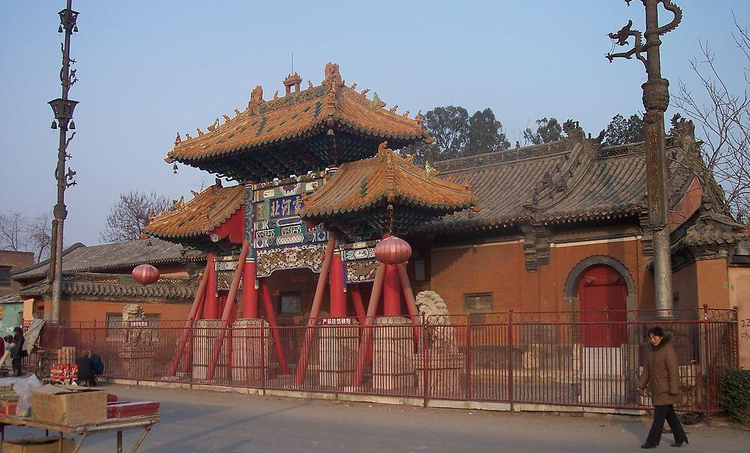
Jiaozuo Yaowangmiaodadian.
4. Is there an entrance fee?
Yes, there is a nominal entrance fee to visit the temple grounds. This fee helps with the maintenance and preservation of this important cultural site. Be sure to check for any discounts for students or seniors.
5. When is the best time to visit?
The ideal time to visit Yaowang Temple is during the spring and autumn months when the weather is pleasant. Additionally, visiting during traditional Chinese festivals can enhance your experience, as the temple often holds special events and ceremonies during these times.
6. Are there any nearby attractions worth visiting?
Yes, the surrounding area is rich in natural beauty and historical significance. Nearby attractions include the scenic Yuntai Mountain, Qinglong Gorge, and various other temples and cultural sites that reflect the region’s history.
7. Can I take photographs inside the temple?
Photography is generally allowed in the temple complex; however, be respectful of the worshippers and any signs indicating restricted areas. It’s best to ask for permission before taking close-up photos of individuals, particularly during religious ceremonies.
8. Are there accommodations nearby?
Yes, there are various accommodation options near Yaowang Temple, ranging from budget hostels to more upscale hotels. Staying in the vicinity allows for easy access to the temple and other local attractions, making it a convenient base for exploration.
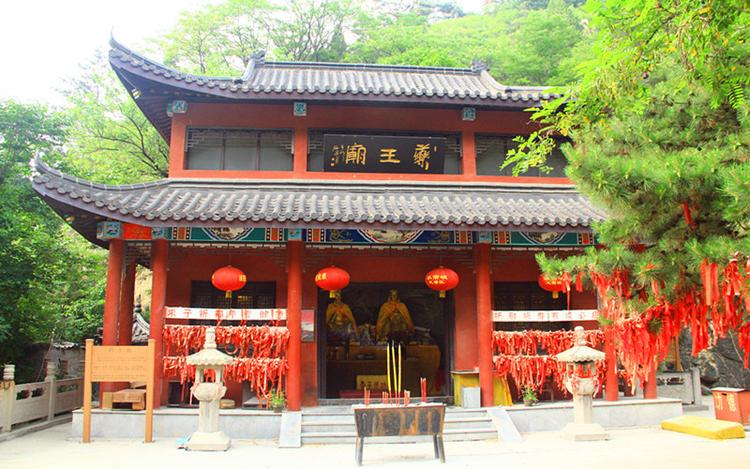
Jiaozuo Yaowangmiaodadian.
Final Thoughts on Your Trip
Visiting Jiaozuo’s Yaowangmiaodadian offers a profound glimpse into the rich tapestry of Chinese history and culture, seamlessly intertwined with deep-rooted traditions of medicine and spirituality. This ancient temple, dedicated to the revered figure of Sun Simiao, not only serves as a place of worship but as a testament to the enduring legacy of traditional Chinese medicine.
As you stroll through the hall adorned with intricate carvings and historical relics, you can feel the echoes of centuries past, where knowledge and healing were sacred pursuits. The majestic architecture, coupled with the serene atmosphere, invites reflection and reverence, making it a perfect retreat from the hustle of modern life.
Whether you are a history enthusiast, a spiritual seeker, or simply looking for a unique travel experience, Yaowangmiaodadian promises to enrich your journey. This sacred site stands as a reminder of the harmony between humanity and nature, and the power of knowledge passed down through generations. Embrace the wisdom of the past, and let your visit to this extraordinary temple inspire a deeper appreciation for the cultural heritage that shapes our world today.
